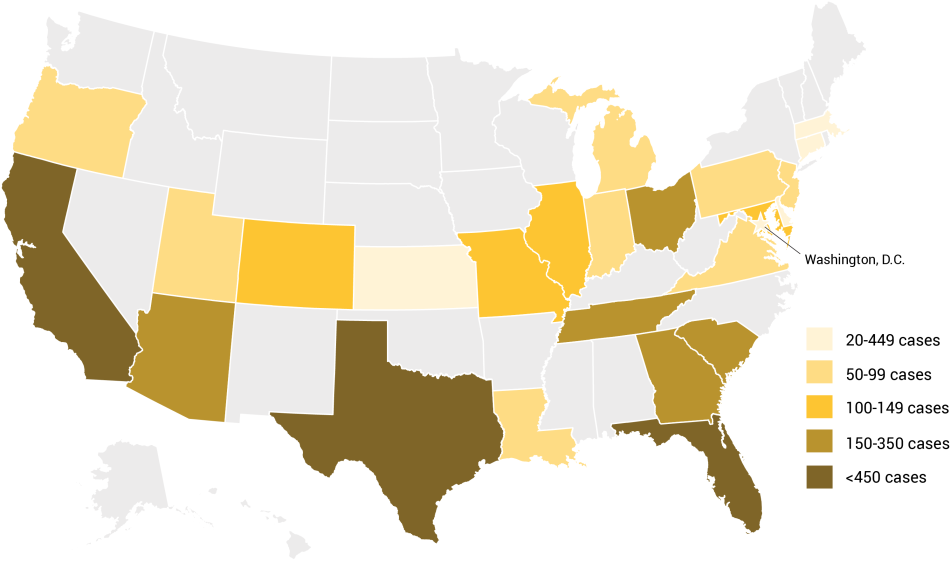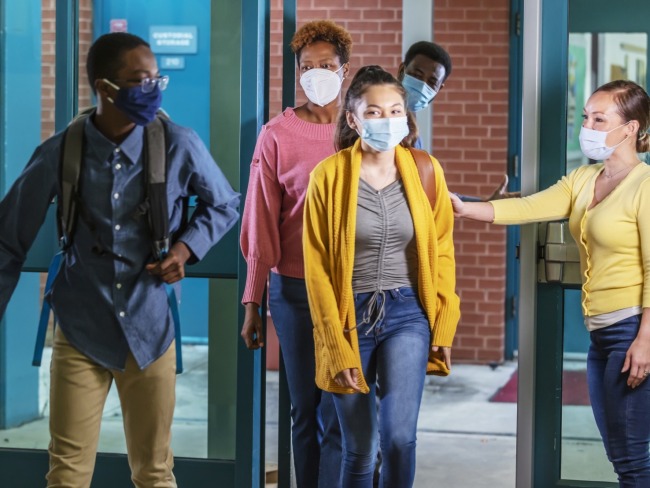COVID-19 in Juvenile Facilities
The widespread incidence of COVID-19 inflicts devastating impacts on incarcerated youth, their families, the staff who work in those facilities, and the communities they call home. The Sentencing Project is tracking COVID-19 positive diagnoses among youth and staff at juvenile facilities and the number of known cases in each state.
Related to: Youth Justice, Sentencing Reform
COVID-19 Diagnoses in Juvenile Facilities: Known Cases 3,936 youth as of March 31, 2021.
COVID-19 has infected thousands of youth housed in and staff working in juvenile facilities. Given the close proximity that defines life in congregate care settings, such as detention centers and residential treatment centers, such spread was inevitable without significant reductions in population in these facilities. Since March, The Sentencing Project has urged the release of as many youth as possible to bend the curve of infections within the juvenile justice system. As of January, five staff members working in these facilities have died from COVID-19.
Among detained youth, COVID-19 cases have been reported in 41 states, the District of Columbia, Guam, and Puerto Rico. Cases among staff have been reported in 43 states, the District of Columbia, and Guam.
Most states and localities have taken steps to limit the spread of the virus, such as reducing visitation from families and counsel and screening staff and visitors for symptoms of the virus. New Jersey, Maryland, Maine, and Texas have either completed or announced plans to test all youth in their state-run facilities. States like Nebraska, Tennessee and Rhode Island have responded to small numbers of cases in specific facilities with widespread testing of youth and staff there. Large numbers of reported infections can reflect more aggressive testing.
Despite this global health crisis and the risks involved, many facilities — particularly privately managed ones — have been reticent to share what they know about the presence of this novel and deadly disease. Silence does not protect youth, staff or the community from infection, and rumors and the disease will spread regardless. This silence is inexcusable.
COVID-19 Diagnoses in Juvenile Facilities: Youth Cases

There is a better way. Reducing exposure to the virus requires reducing the number of incarcerated youth, many of whom would be better served in their communities. On a typical day, roughly 70 percent of youth are held on non-violent offenses. Detention centers, designed to house youth who have been suspected of, but not found responsible for, their offenses, have high turnover, often with short stays serving little, if any, public safety interest.
Jurisdictions such as Colorado, Clayton County (Georgia) and Fresno County (California) are releasing young people as a response to the virus. In detention facilities and jurisdictions monitored by the Annie E. Casey Foundation’s Juvenile Detention Alternative Initiative (JDAI), detention populations have fallen by a third, though largely due to fewer admissions.
Among the most troubling responses to the virus have been facilities in Ohio, Louisiana, and elsewhere that have placed tremendous numbers of youth in their facilities into quarantines that, in practice, may be little different from solitary confinement, a particularly traumatic and damaging experience for young people that is prohibited by many state laws and policies and international human rights standards. Public health officials have rejected solitary confinement for adults as a non-medical, damaging and counterproductive response to the COVID-19 Pandemic.
This page is updated regularly to show the growth of COVID-19 among youth and staff at juvenile facilities where tests have been reported. As a result, there are COVID-19 cases that are unknown to the public; jurisdictions that share their data with the public deserve plaudits for doing so.
In addition to reductions in youth confinement, The Sentencing Project supports widespread testing within facilities, following the lead of New Jersey, the first state to test all confined youth for COVID-19.



